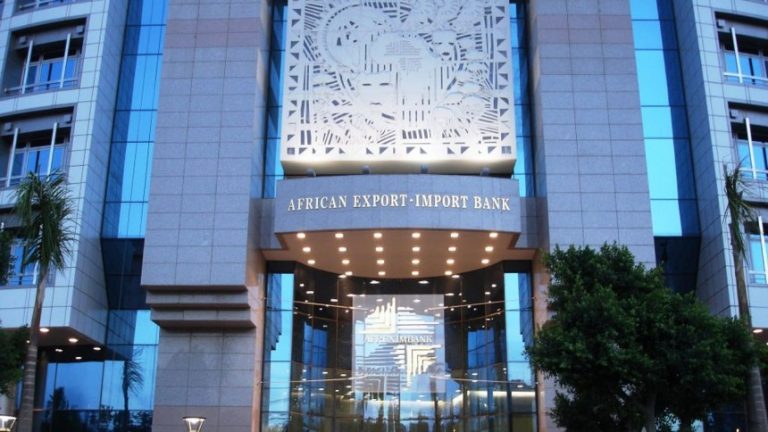
In a move aimed at bolstering African financial integration, the African Export-Import Bank (Afreximbank) has announced the disbursement of a $40 million Intra-African Investment Facility to Fidelity Bank Nigeria Plc.
This funding will support Fidelity Bank’s acquisition and recapitalization of Union Bank UK, marking a pivotal step in its international expansion program.
The facility, provided in two tranches of $20 million each, enabled Fidelity Bank to refinance the acquisition of a 100% equity stake in Union Bank UK and inject additional equity into the bank, as approved by the UK’s financial regulator. This strategic transaction positions Fidelity Bank to establish a new pan-African financial institution capable of offering correspondent banking and offshore services to African banks and catering to the banking needs of the African diaspora.
Register for Tekedia Mini-MBA edition 19 (Feb 9 – May 2, 2026): big discounts for early bird.
Tekedia AI in Business Masterclass opens registrations.
Join Tekedia Capital Syndicate and co-invest in great global startups.
Register for Tekedia AI Lab: From Technical Design to Deployment (next edition begins Jan 24 2026).
Kanayo Awani, Executive Vice President of Afreximbank, emphasized the strategic importance of this transaction, aligning with the bank’s goal to promote African control of capital and enhance intra-African trade and investments.
“By supporting this strategic transaction, we are not only bolstering Nigeria’s banking sector but also fostering greater financial integration between Africa and its diaspora,” Awani stated.
Dr. (Mrs.) Nneka Onyeali-Ikpe, MD/CEO of Fidelity Bank, expressed gratitude for Afreximbank’s support, highlighting the strong partnership between the two institutions. She noted that the refinancing of Union Bank UK will unlock additional value and help create a scalable and sustainable service franchise to support trade businesses in Africa and the diaspora.
Impact of CBN’s Recapitalization Directive
This strategic move by Fidelity Bank came in the wake of the Central Bank of Nigeria’s (CBN) latest recapitalization directive to banks. The CBN has mandated that banks significantly increase their minimum capital base to ensure stability and resilience in the banking sector.
Under the latest policy directive, commercial banks with international authorization are mandated to fortify their capital base to an impressive N500 billion. National banks, on the other hand, are required to meet a minimum capital threshold of N200 billion. This move reflects the CBN’s concerted efforts to strengthen domestic financial institutions. Also, commercial banks with regional authorization must augment their capital to N50 billion, ensuring they possess adequate resources to support their operations within specific geographic regions.
This directive is part of broader efforts to strengthen the financial system and ensure that Nigerian banks are adequately capitalized to withstand economic shocks. It’s important to note that the new capital requirement will be comprised solely of paid-up capital and share premium. Shareholders’ funds will not be considered in meeting this requirement.
Only private placements, rights issues, offers for subscriptions, and strategic mergers and acquisitions are allowed under the new policy directive.
In response to the CBN’s directive, many Nigerian banks are moving to raise additional capital by offering right issues and merging with other banks. These capital-raising activities are aimed at meeting the new regulatory requirements and positioning banks for future growth. For instance, several banks have announced plans to issue rights offerings and private placements to raise the necessary funds. The increased capital will enhance the banks’ ability to support larger transactions and expand their services both domestically and internationally.
Broader Implications for the Banking Sector
However, Fidelity Bank’s acquisition of Union Bank UK and the subsequent recapitalization are expected to have significant implications for the Nigerian banking sector. By increasing its capital base, Fidelity Bank will be better positioned to compete on a global scale, offering enhanced services to its customers and supporting the economic integration of the African continent.
This strategic transaction is expected to contribute to Africa’s economic growth by increasing trade finance and flows between Nigeria and the UK, integrating the African diaspora into regional supply chains, and enhancing the competitiveness of SMEs across the continent.
The move aligns with Afreximbank’s mission to promote intra-African trade and investment and underscores the importance of strong financial institutions in driving economic development.
Financial analysts note that as the banks comply with the CBN’s recapitalization directive, the sector is likely to see increased mergers and acquisitions, strategic partnerships, and a focus on international expansion. This trend is expected to not only enhance the resilience of the banking sector but also create new opportunities for growth and innovation.



